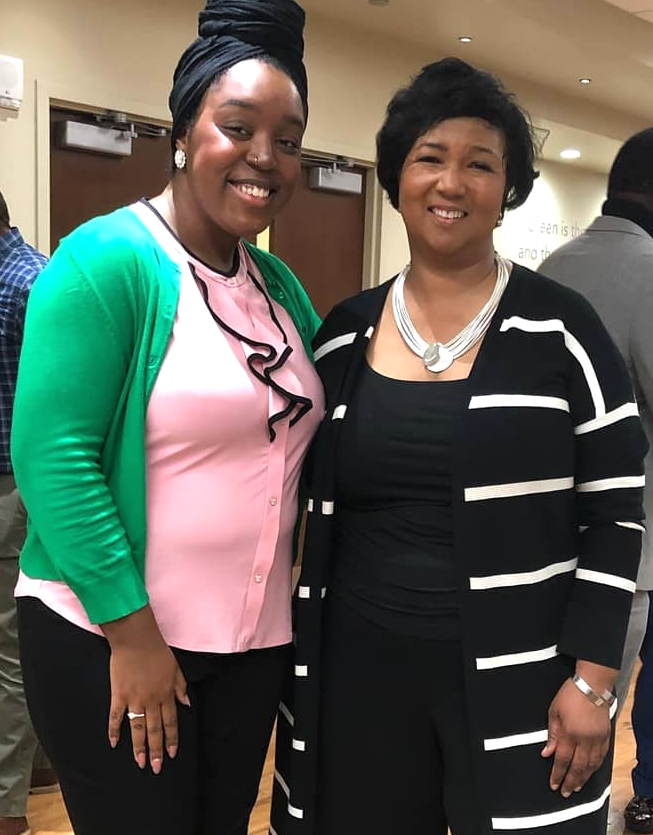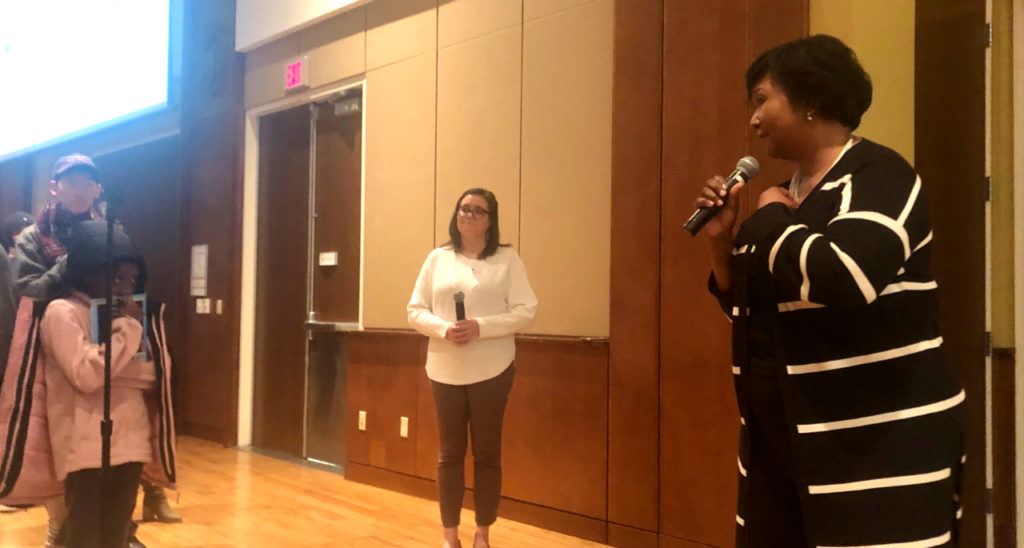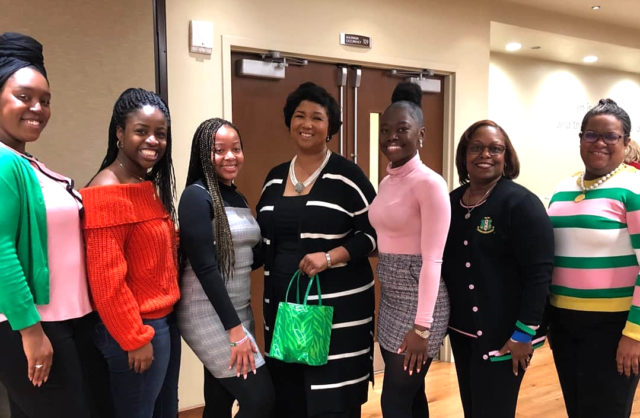On Tuesday night, Jan. 21, Kiley Ogodogu and her eight-year-old daughter, Niya, were patiently enduring a band concert in their hometown of Oregon, when they received a text about UW-Madison’s annual Martin Luther King Lecture featuring Dr. Mae C. Jemison.
The mother/daughter duo rushed to UW-Madison’s Union South as fast as they could.
“I thought it was going to be a boring day,” said Niya, an aspiring-astronaut herself. Fully prepared with her bright orange spacesuit costume and Mae Jemison picture book, Niya’s Tuesday night quickly made a turn for the better.
“I’m just so excited that she was able to meet her,” Ogodogu said. “Because she’s very adventurous and it seemed like Mae had the same kind of spirit when she was younger.”
In fact, Jemison was quite adventurous when she was Niya’s age.
When the esteemed physician, engineer, astronaut, and trained dancer was just eight-years-old she wasn’t very concerned with being the first Black woman to go into space. Her biggest concern was “what happens if the aliens only see these guys and they think that everybody on earth is a buzzcut-haired white male.”
“I never thought because there was a white male that was up in space, that I couldn’t be up there,” she said.
Continuing in that same spirit, Jemison has now forged a legacy by following her dreams despite the odds and disregarding what others think of her.
“Someone doesn’t have to have done something for you to do it,” she said.
Hosted by UW-Student Affairs, the Division of Diversity, Equity and Educational Achievement and the Morgridge Center for Public Service, Jemison’s lecture filled Union South’s Varsity Hall to the brim. Kids dressed as an astronaut scurried through the aisles, as 1,100 people made their way to their seats. The night opened with words from UW graduate student Coty Weathersby, UW Chancellor Rebecca Blank and Lt. Gov. Mandela Barnes.

The Alabama-born and Chicago-bred trailblazer was welcomed by a standing ovation from the crowd. Her speech walked the audience through how Dr. Martin Luther King’s legacy impacted her personal journey as a science and technology change agent.
“When was the last time you looked up?” Jemison asked the audience.
Looking up, Jemison said, is what connects her to Dr. King. “That inspiration, that hope that we find…I believe that connected us,” she said.
“I remember when I was a little kid looking up, I use to think of, ‘What are other children seeing around the world? Are they seeing the same sun? The same stars?’ It sort of got me into this feeling that we were all connected,” she said.
“We need to feel connected. Some kind of way, we got to reconnect around this planet.”
While reflecting on how she honors this connection to Dr. King, Jemison asked the audience to consider honoring his legacy by cultivating their own talents.
“Then using that talent to create something positive in the world … something positive that’s beneficial to the longevity of humanity and the universe,” she said.
Jemison graduated from Stanford University with her bachelor’s degree. She later went on to pursue a career as a medical doctor at Cornell University Medical College. She is widely recognized for her 1992 voyage on the space shuttle Endeavor, which made the first woman of color to ever go into space.
While on the Endeavor, Jemison said she took a number of keepsakes to represent people and organizations that had not been to space. She said she took a Spelman flag, an item representing Alpha Kappa Alpha Sorority and a poster of dancer Judith Jamison.
“I figured Stanford didn’t need another Stanford banner up there,” she said, jokingly.

(Photo by Kynala Phillips)
Since her eight-day mission suspended in Earth’s orbit, she has been inducted into the National Women’s Hall of Fame and the International Space Hall of Fame.
But before making take her historic trip into outer space, Jemison noted that her past experiences are what kept her grounded. For example, she explained how her time in Chicago Public Schools and her involvement as a Peace Corps Medical Officer in Sierra Leone and Liberia influenced her contributions as an astronaut and engineer.
“When I talk about and think about Dr. King, it’s really about what do I do with my place at the table,” she said.
“When you’re sitting at the table, what are you doing with your position there?” she said as the audience hummed in consideration. “Do you act just like everyone else and mind your table manners?”
Today, Jemison’s work includes leading the federally funded 100 Year Starship program. The mission of the Pentagon-based project is to discover the technology needed to make an interstellar flight a reality in the next 100 years. She is also inspiring people to ‘Look Up’ through her “Skyfie” app and its campaign to reconnect people to the sky and the universe as a whole.
“It’s not about recounting past firsts or accomplishments in the African American community,” she said. “But rather honoring Martin Luther King’s legacy is to acknowledge and to develop and to use our own talents and skills to affect a positive change in the world.”
“I think it’s really important for my daughter to recognize that she’s part of a legacy of Black excellence,” said Madison local Jessi Kendall who brought her nine-year-old daughter Olivia to see Jemison speak.
“This was a wonderful experience,” Olivia said, adding that when she sees her friends she will probably brag that she met the Mae Jemison.
This story also appears in The Black Voice.


































